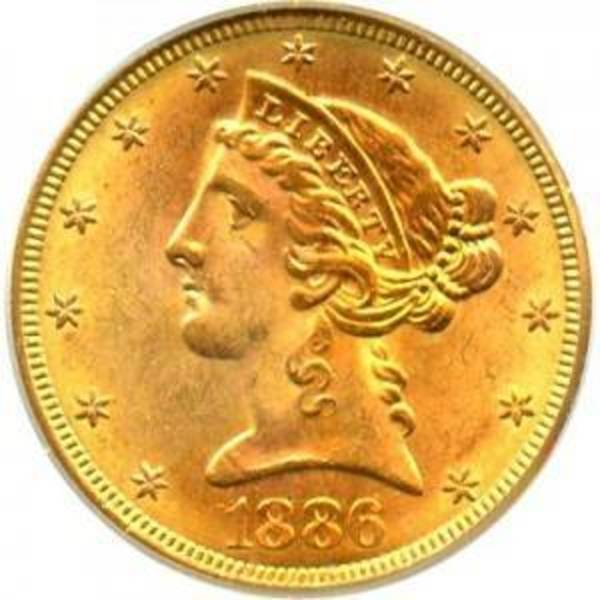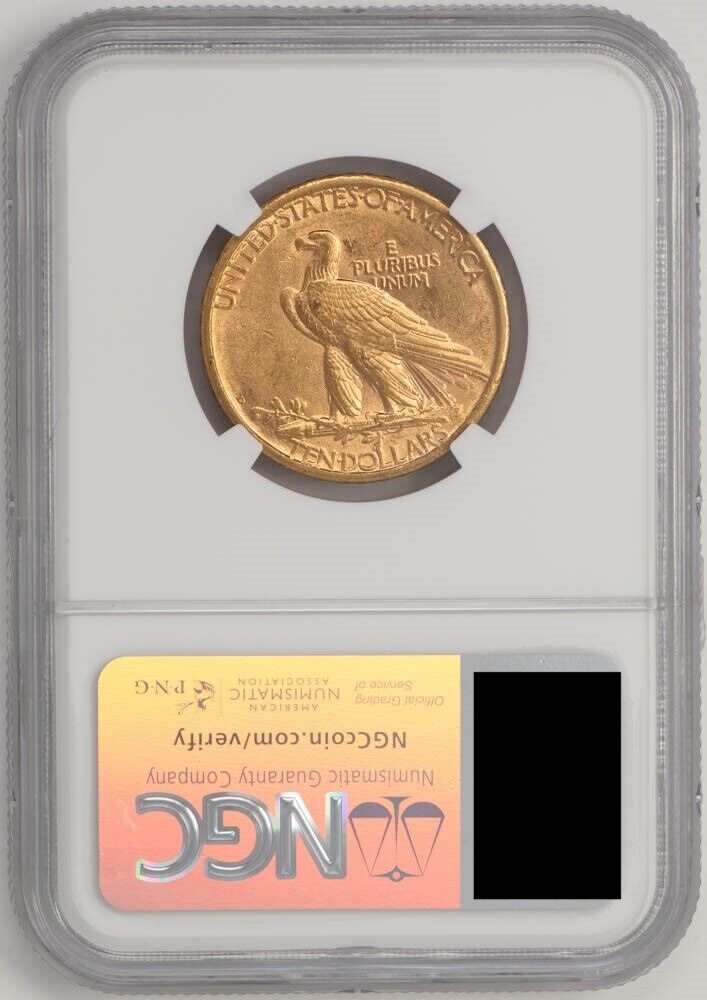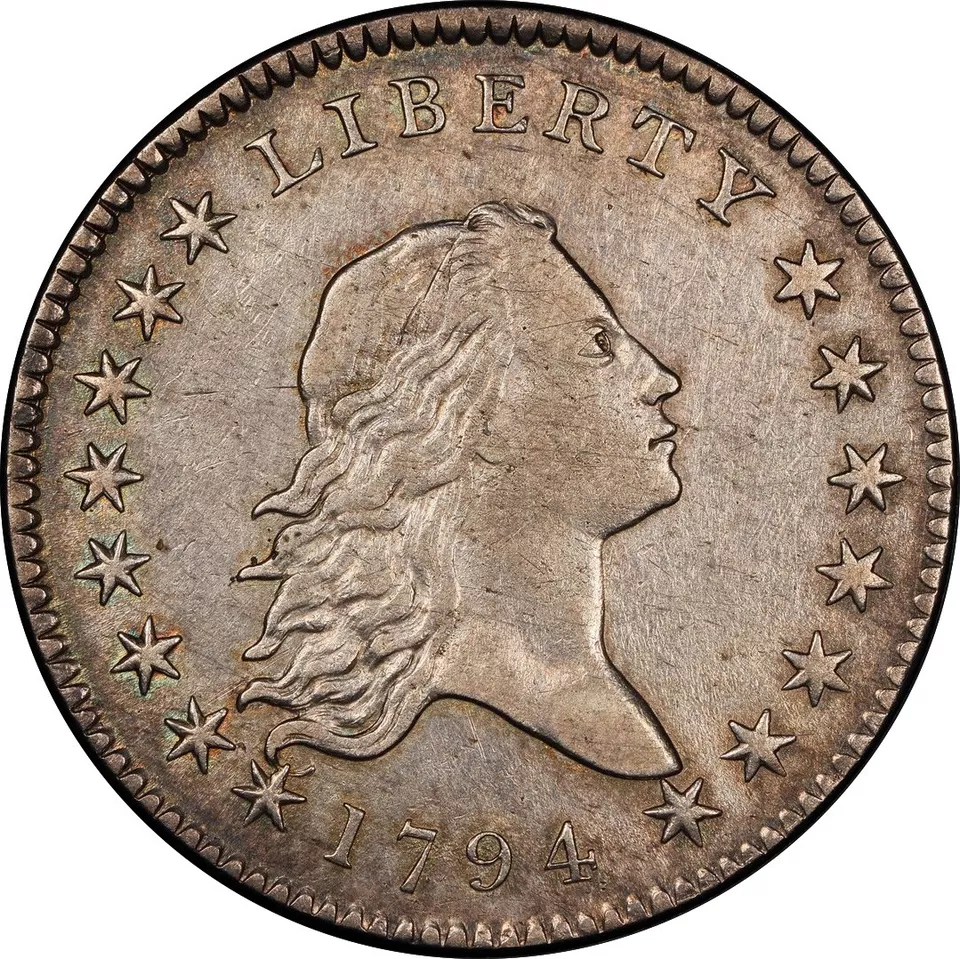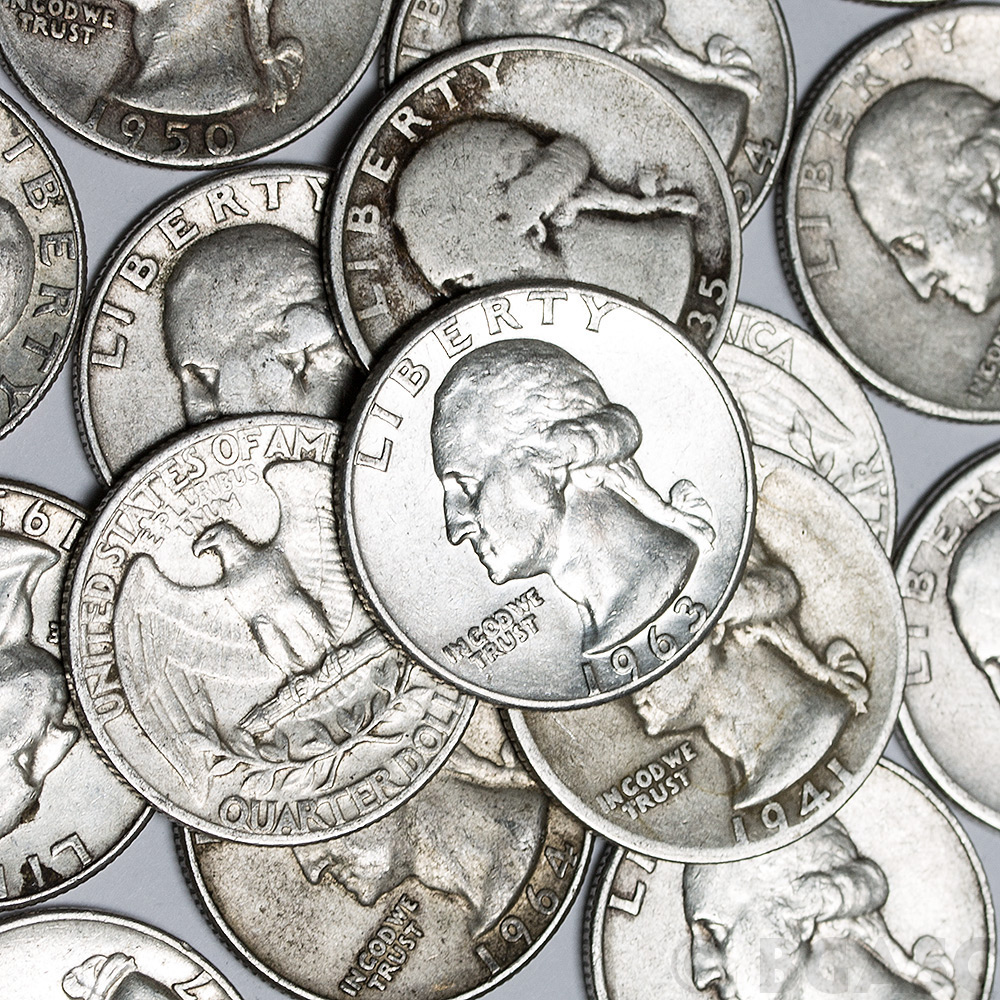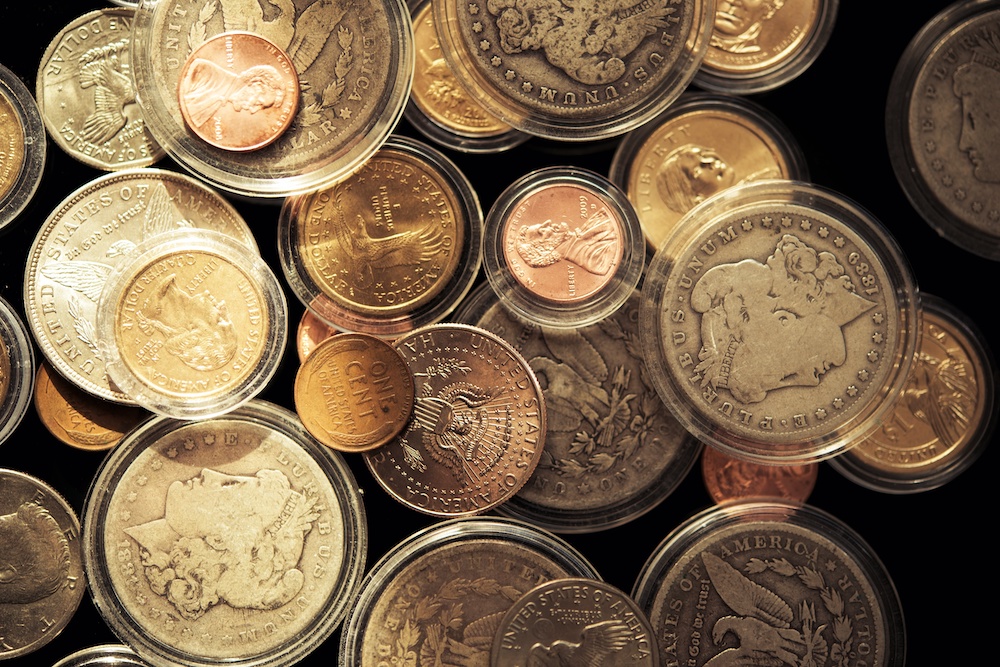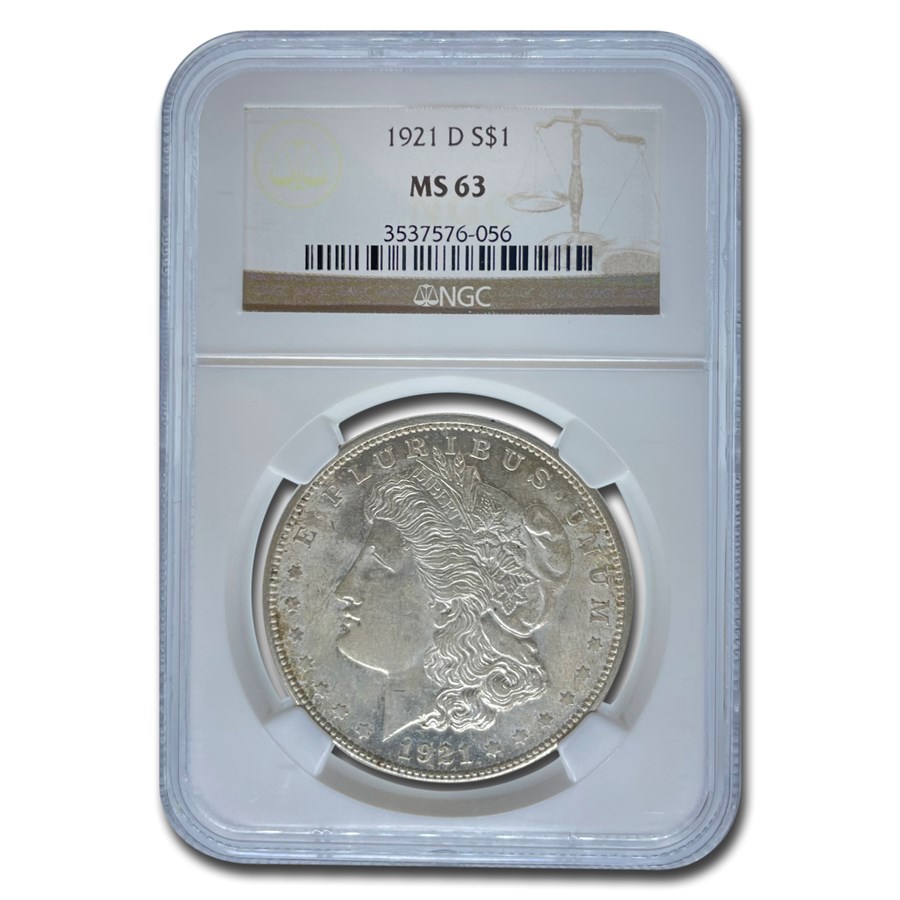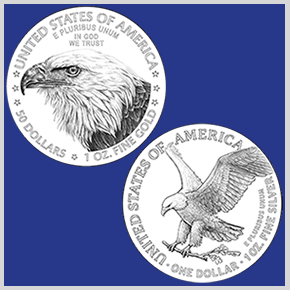The Liberty Head $5 Half Eagle gold coin combines affordability, historical significance, and investment potential, making them far more accessible and desirable to a broader range of collectors. But what makes these coins stand out, and why are they more popular than other designs?
Liberty Head Series
The Liberty Head design, created by Christian Gobrecht, was introduced in 1839 and features a classic image of Lady Liberty wearing a coronet, symbolizing freedom and American ideals. She is depicted on the obverse wearing a coronet hat displaying with the word “LIBERTY”. The reverse features an eagle with a shield on its breast, clutching arrows and an olive branch, symbolizing both war and peace.
This design was used on multiple denominations of U.S. gold coins minted from 1839 to 1908, including the $5 Half-Eagle, giving them a cohesive appeal.
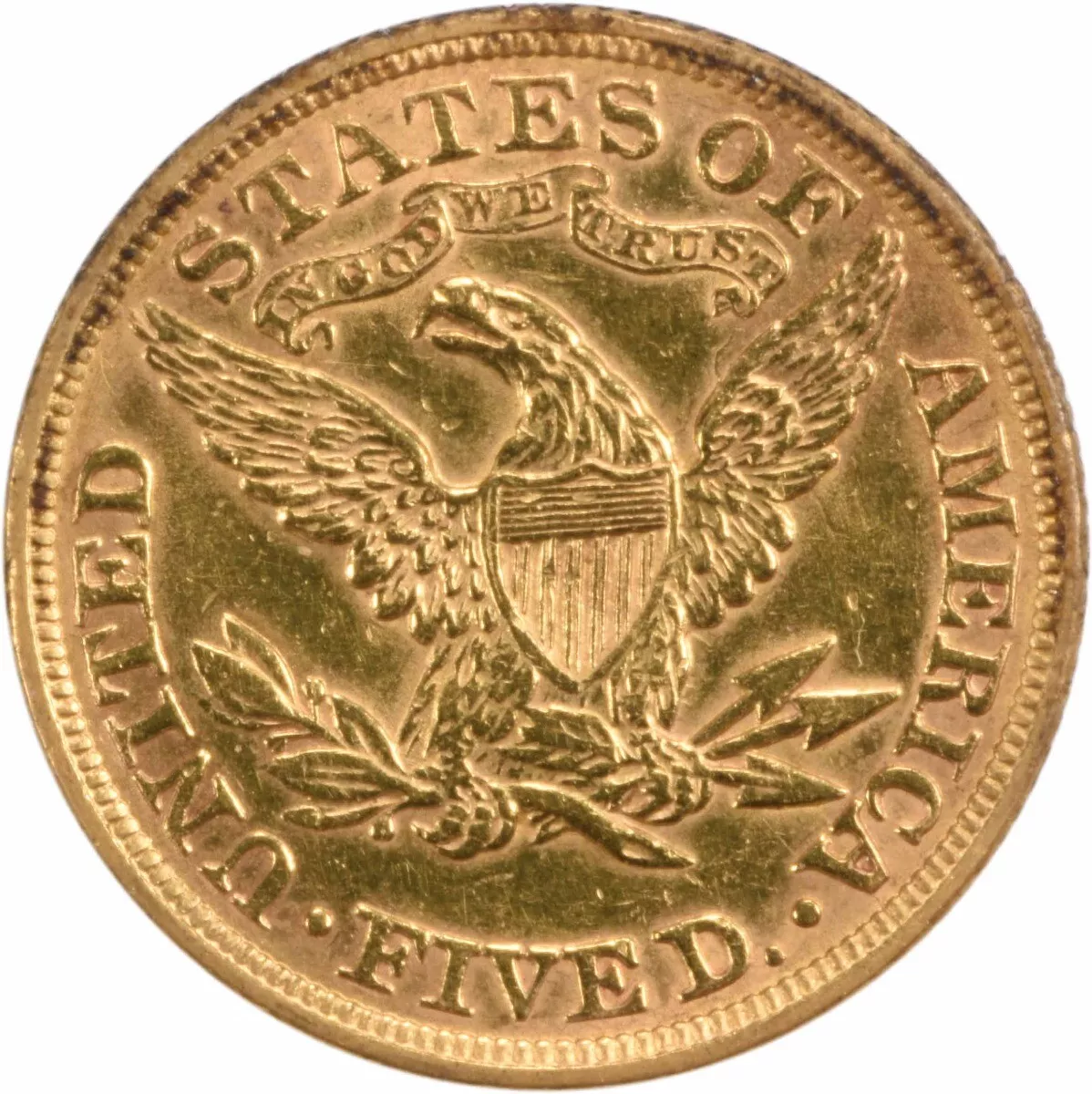
Liberty Head coins were struck in large quantities and widely used in circulation. As a result, more have survived, helping keep $5 gold coin prices affordable, particularly in circulated grades.
Affordable $5 Half Eagle Coins
The U.S. Mint continuously struck the $5 Liberty Head Half Eagle for nearly 70 years and in much larger quantities than earlier coins. In circulated conditions, these coins often trade closer to their intrinsic gold melt value. They are widely available from precious metals dealers and coin shops in a variety of conditions, from heavily circulated to brilliant uncirculated, allowing collectors and investors to choose coins that fit their budget and goals.
Liberty $5 Specifications
| Coin | Composition | Gross Weight | Gold Content | Diameter | Thickness | Edge | Minting Years |
| $5 Half Eagle | 90% Gold 10% Copper | 8.359 grams 0.2687 troy ounces | 0.24187 ozt | 21.6 mm 0.85 inches | 1.4 mm | Reeded | 1839–1908 |
Common-Date $5 Half Eagle Value Ranges
In lower grades, the value of most $5 Half-Eagles is near their gold melt value, with a small premium for their historical and numismatic significance.
| Condition | Value Range |
| Good (G-4) to Very Fine (VF-30) | $900 to $1,000 |
| Extremely Fine (EF-40 to EF-45) | $950 to $1050 |
| About Uncirculated (AU-50 to AU-58) | $975 to $1075 |
| Mint State (MS-60 to MS-62) | $1000 to $1,100 |
| Mint State (MS-63 and above) | $2,500 to $10,000+ |
Coins in Extremely Fine condition have less wear and show more detail, commanding a higher premium. Coins in AU condition are highly desirable as they retain much of their original luster.
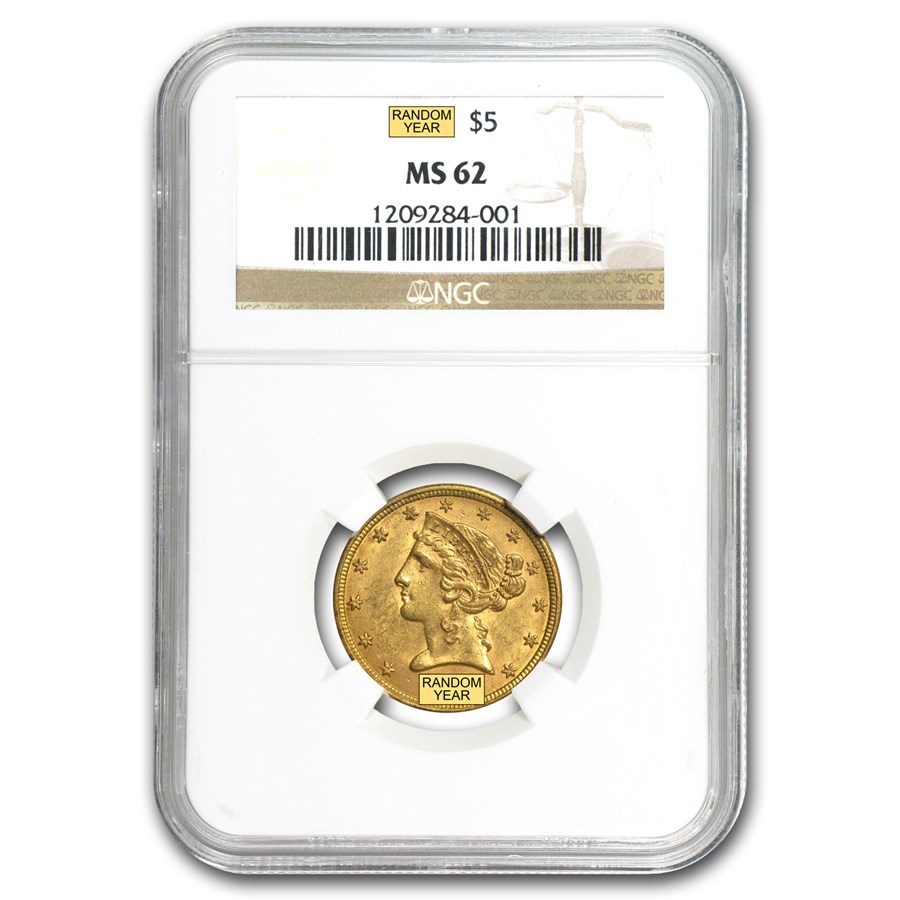
Liberty Head $5 Half Eagles in Mint State condition can be significantly more valuable, with prices starting around $800 and going up.
High-grade Liberty Head Half Eagles are rare, particularly with solid eye appeal. They can fetch $2,500 to $10,000+.
Like the larger denominations, the condition of a $5 half-eagle significantly influences its value. Coins in higher grades, such as Mint State, command much higher prices than those in lower grades.
Grading Scale
When evaluating and grading $5 Gold Coins, third-party grading services use the Sheldon Scale, which provides an accurate, reliable, consistent and transparent grade. Coins that are authenticated, graded and encapsulated are preferred due to their ease of liquidity.
The Sheldon Scale was developed by Dr. William Sheldon in 1949 as a 70-point scale used to grade the condition of coins. The grades range from 1 (Poor) to 70 (Perfect Mint State).
Coronet $5 Gold Coin Key Date Values
These key dates generally command much higher premiums than more common dates.
| Fine (F-12) | Extremely Fine (EF-40) | About Uncirculated (AU-50) | Mint State (MS-60) | |
| 1839-C (Charlotte) Mintage: 17,205 coins | $5,000 to $7,000 | $15,000 to $25,000 | $30,000 to $50,000 | $70,000 and above |
| 1861-C Mintage: 6,879 | $1500 to $2,500 | $2,000 to $3,000 | $2,500 to $3,500 | $3,000+ |
| 1861-D (Dahlonega) Mintage: 1,597 | $30,000 to $50,000 | $100,000 to $150,000 | $200,000 and up | |
| 1854-S (San Francisco) Mintage: 268 | $25,000 to $35,000 | $75,000 to $150,000 | $250,000 to $400,000 | Upwards of $500,000+ |
| 1875 (Philadelphia) Mintage: 200 | $40,000 to $50,000 | $100,000 to $200,000 | $300,000 and up | |
| 1862-S Mintage: 9,000 | $4,000 to $7,000 | $12,000 to $20,000 | $25,000 to $40,000 | |
| 1901-S Mintage: 3,437,640 | $700 to $800 | $800 to $1,200 | $4,000 to $5,000 | $8,000 and up |
| 1870-CC Mintage: 7,675 | $10,000 to $15,000 | $35,000 to $50,000 | $70,000 and up |
The Charlotte and Dahlonega mints were part of the early Southern Gold Rushes in the U.S.
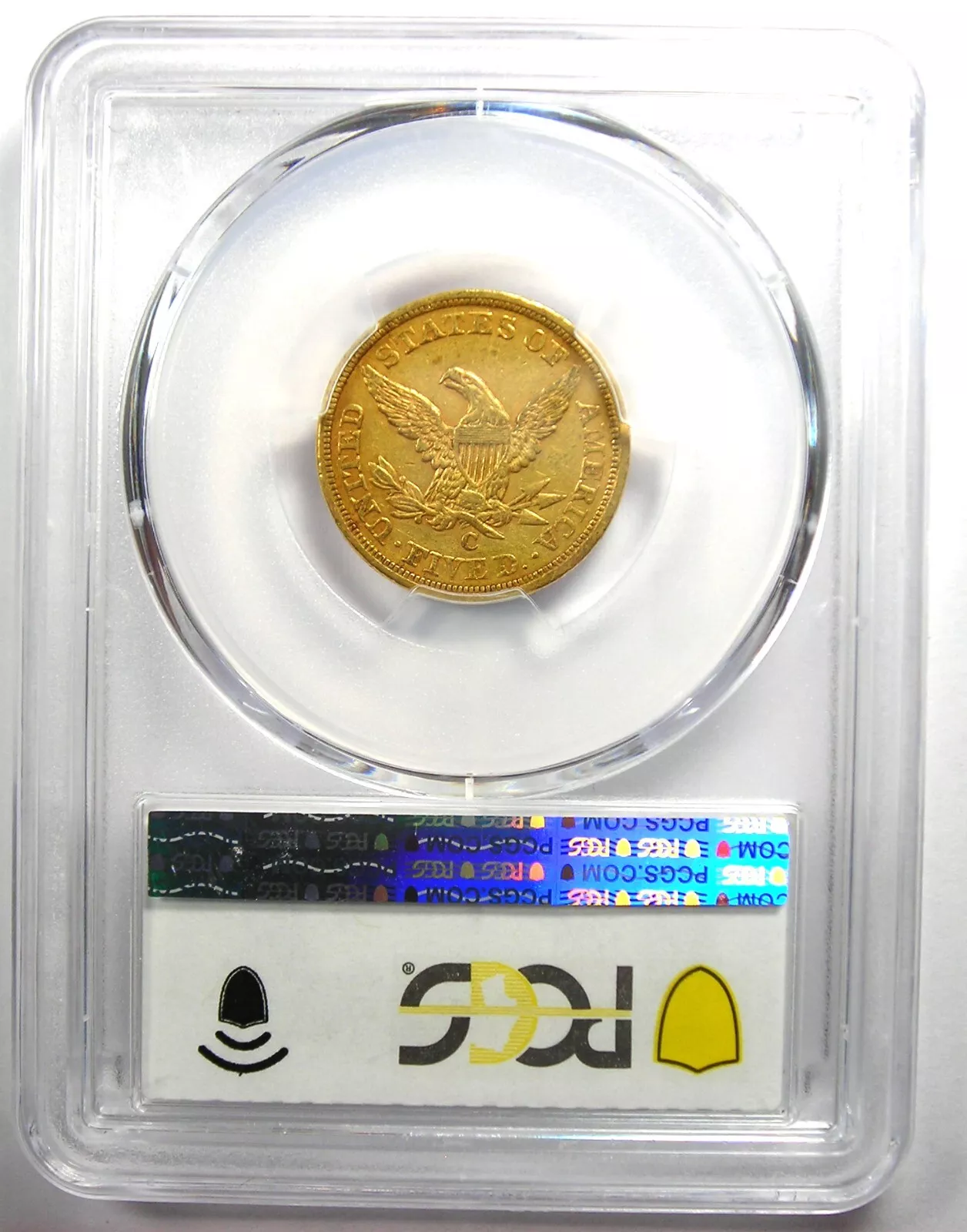
The Charlotte Mint was established in 1838 to process gold discovered in the North Carolina gold rush. Around the same time, the Dahlonega Mint opened to handle gold from Georgia’s gold rush.
Coins from these mints saw heavy use in daily transactions. Uncirculated and high-quality examples of $5 Half Eagles from these mints drives is scarce and drives their value among collectors.
Mint Marks
Coins struck at branch mints have mint marks located on the reverse side, below the eagle.
Mint marks include:
- C for Charlotte
- D for Dahlonega (pre-1861) and Denver (post-1906)
- O for New Orleans
- S for San Francisco
- No mint mark for Philadelphia
